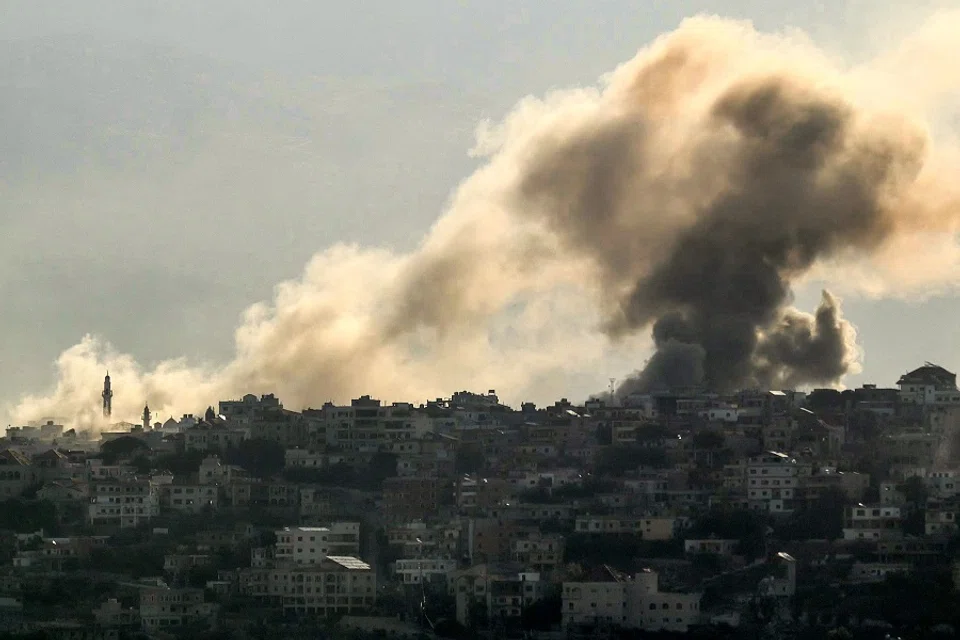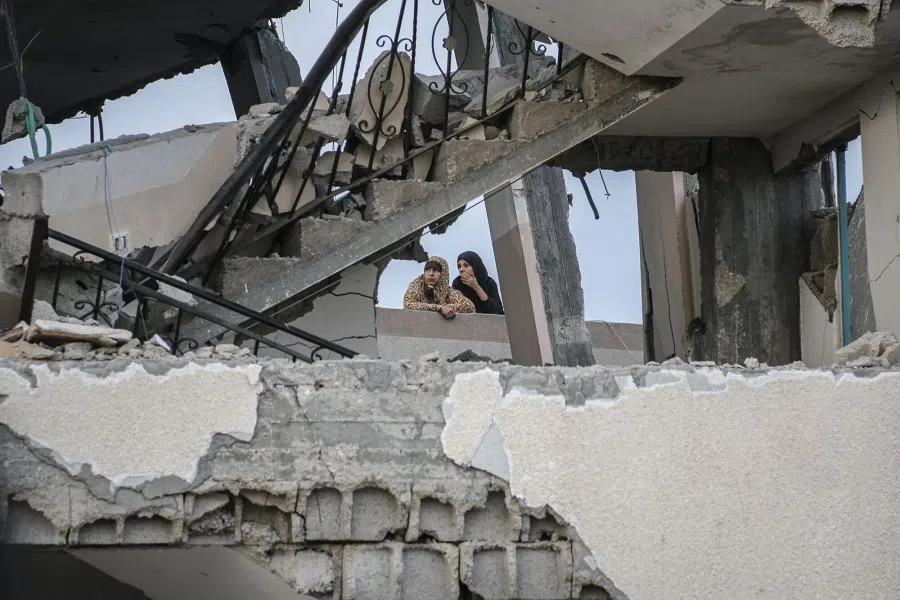China struggles for real influence as Middle East crisis deepens
A year since the start of the Israel-Hamas war, academic Alessandro Arduino reflects that time is running out before the conflict spirals into a greater regional conflict. In this situation, China sees much of its interests threatened but has yet to adopt a more proactive stance.

The Middle East is burning again. The detente brokered by China between Iran and Saudi Arabia in 2023 feels like a distant memory now. Hassan Nasrallah, Hezbollah’s leader, is dead — assassinated.
Tel Aviv faces a barrage of Iranian ballistic missiles, while Israeli troops are actively engaged in a ground invasion of Lebanon against Hezbollah. On the anniversary of last year’s 7 October Gaza war, Israel has intensified its bombardment of Gaza as Hamas continues to retaliate.
... history has repeatedly shown leadership decapitation to be ineffective in the long term.
Spiralling conflict: China’s diplomacy efforts in vain
Again, the region is teetering on the edge of a broader war, and Beijing’s shuttle diplomacy efforts are hampered by the rising escalation of violence.
China’s peace plan in Gaza seems stuck in the proverbial Middle East quagmire, with the attempted reconciliation of Fatah and Hamas during a recent meeting in Beijing not leading to the expected outcome. Beijing’s advocacy for the longstanding “two-state solution” to the Israeli-Palestinian conflict, its opposition to any breach of Lebanon’s sovereignty, and its call for all parties, especially Israel, to immediately de-escalate and prevent the conflict from expanding or spiralling out of control, are unlikely to have a significant impact on the actual outcomes.
From an Israeli strategic perspective, the unprecedented attacks on Hezbollah, an Iran-aligned group, using booby-trapped communication devices, followed by the assassination of Nasrallah, reflect a longstanding belief that cutting off the head would kill the snake.
However, history has repeatedly shown leadership decapitation to be ineffective in the long term. Particularly when targeting insurgent or militant groups that operate more flexibly and adaptively than conventional military forces.
Israel and West’s actions will have oppposite effect
Even a “limited ground operation”, such as the Israel Defense Forces (IDF)‘s push of the 98th Division’s paratroopers and commandos supported by the 7th Armored Brigade into Lebanon, faced strong resistance from Hezbollah forces. In the hills of Lebanon, Hezbollah is dug in deep but also has nowhere else to go. Becoming the face of resistance to Israel and the West has made retreat, not an option.
For Hezbollah, mere survival is enough to achieve victory but a rising possibility of a domino effect in the region is a global real and present danger.
Israel’s airstrikes have kept Hezbollah in a passive stance with fewer opportunities to support Hamas in Gaza, but the real test comes on the ground.
While Israel’s recent reliance on intelligence operations and air superiority has restored a degree of deterrence, in a ground offensive, the advantages of aerial bombing will be limited to prevent friendly fire. Therefore the IDF’s objective of deteriorating Hezbollah’s ability to launch rockets and ground attacks against Israel depends on its capacity to engage Hezbollah in a territory where the group has built a strong logistical and defensive infrastructure designed for grinding warfare. Most importantly, time works against Israel.

In this regard, the Houthis in Yemen have demonstrated that Western modern warfare is too costly for prolonged conflicts. After just a few weeks and nearly billions of dollars spent, the US and UK naval mission failed to deter Houthi drone and missile attacks. In fact, it had the opposite effect, boosting their local and regional support and a similar outcome could potentially occur with Hezbollah.
Clear and present danger: domino effect in the region
Israel cannot afford to be bogged down in a longstanding ground offensive, not only for the exorbitant costs that it entails but also for the US election on the horizon, another factor that could pull the plug on American support. Two US carrier battle groups are in the Gulf, keeping Iran in check, but that might not last. For Hezbollah, mere survival is enough to achieve victory but a rising possibility of a domino effect in the region is a global real and present danger.
In recent years, China has significantly deepened its involvement in the Middle East from energy security to a deeper diplomatic and security engagement, but its longstanding balancing act with Israel has quickly unravelled.
Beijing has condemned Israel’s actions in Gaza and Lebanon while expressing support for Iran. However, China’s moral backing of Tehran is unlikely to bring about significant changes in the course of action among the involved parties. In China, it will likely fuel the narrative that the US is fostering global instability to curb China’s expansion in the region.
In the Middle East, however, Beijing is still struggling to find a clear stance as it steps out of its traditional non-interference comfort zone. The Middle East is a key piece of Beijing’s geopolitical strategy, linking Central Asia and Africa through multilateral organisations like BRICS and the SCO while advancing its goal of leading the Global South.
However, the ongoing crisis underscores China’s limited ability to exert influence in the region beyond its economic power. Even for Beijing, time is running out to adopt a more proactive stance in the Middle East — one that goes beyond mere political symbolism.





